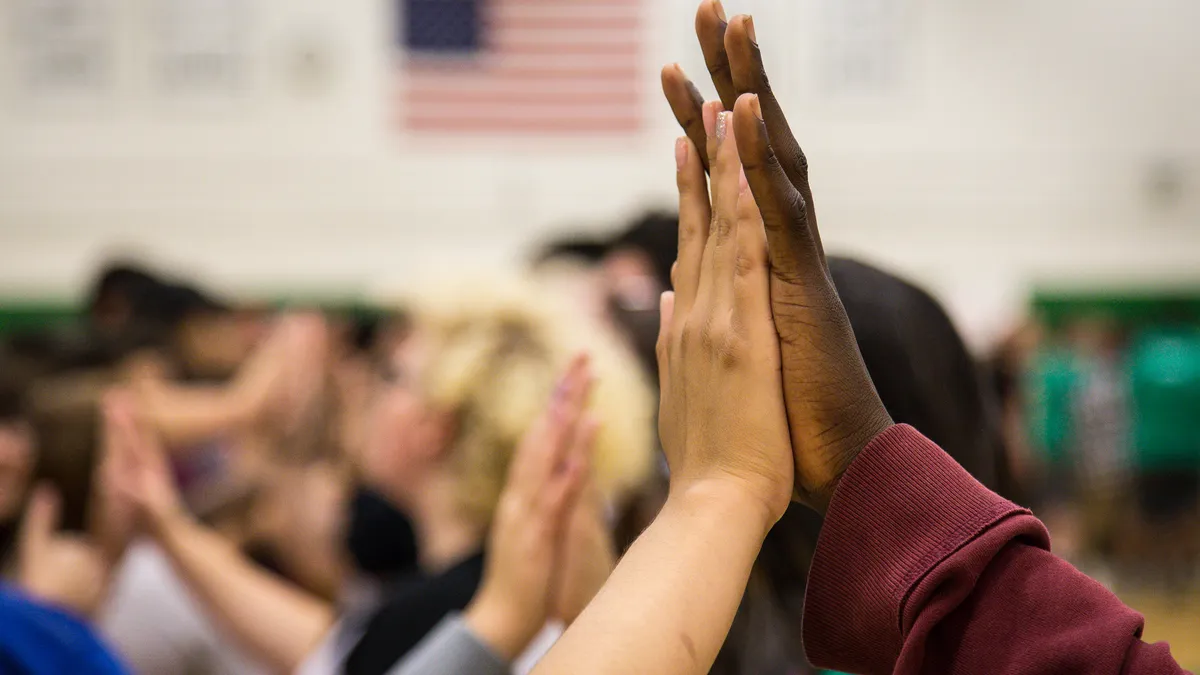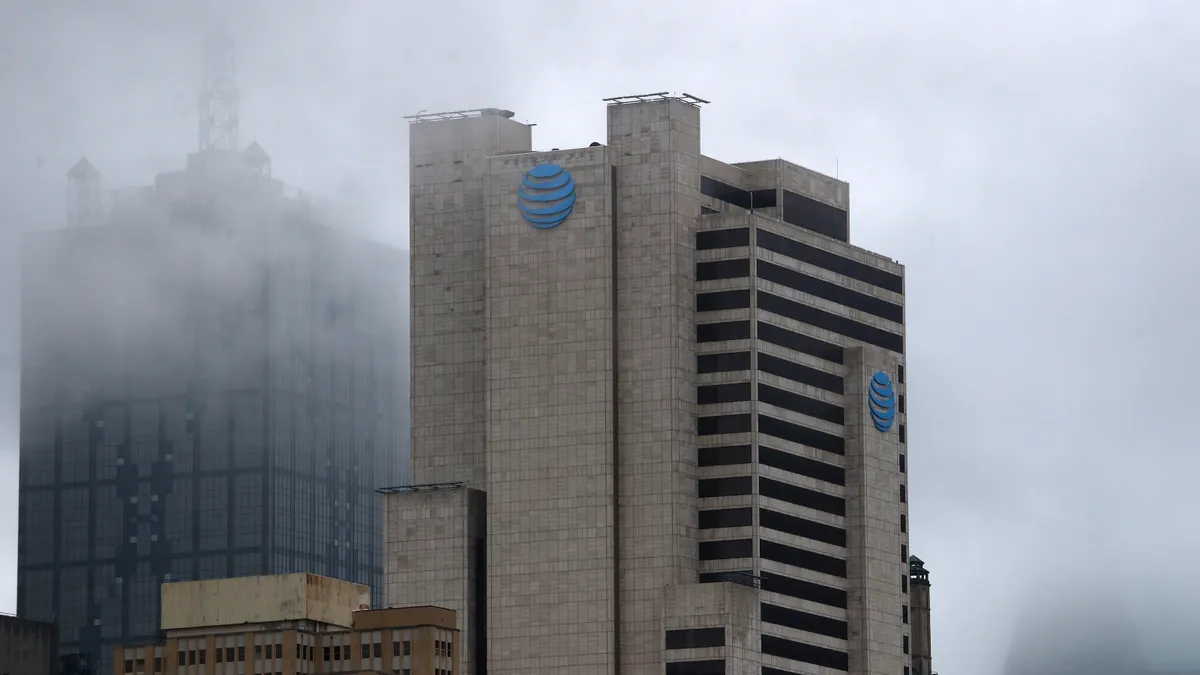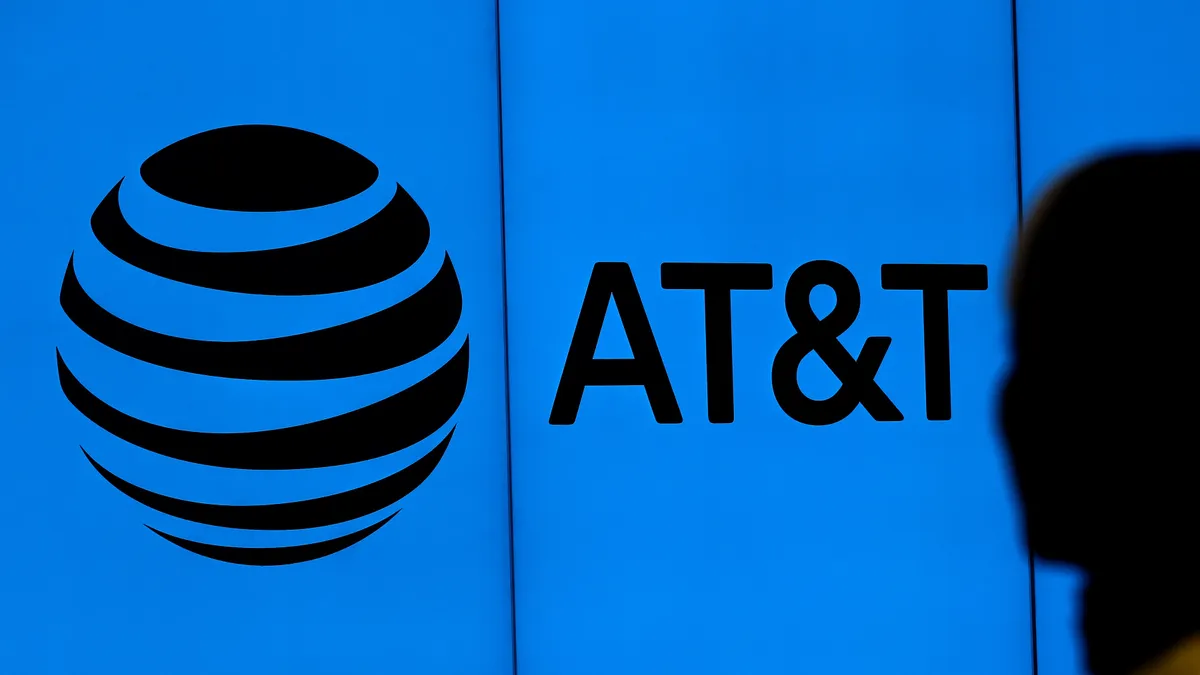For John Register, resilience was important long before the COVID-19 pandemic. As a college track star and four-time All-American, his life seemed destined for glory when he graduated from the University of Arkansas in 1988. He joined the U.S. Army after school and participated in Olympic trials for the 1988 and 1992 games, hoping to make the 1996 games in Atlanta as he reached his athletic prime.
But fate intervened, and after what Register describes as "a freak hurdling accident" in 1994, the Desert Shield and Desert Storm veteran had his left leg amputated from the knee down. A future built on athletic prowess and physical fitness hung in the balance, as Register wondered what aspects of his life he would be able to recover.
Register ended up making the 1996 games, in the Paralympics competing as a swimmer. He also participated in the 2000 Sydney Paralympics in track and field, earning a silver medal in the long jump. He now works as a speaker and consultant, often for corporations and advocacy organizations.
As a Black man who uses a prosthetic leg, a veteran and someone not born with disability, Register discussed with HR Dive his unique vantage point on resilience, inclusion and intersectionality. Questions and answers have been edited for length and clarity.
HR Dive: What is going through your mind after your injury and subsequent amputation?
Register: When I had my injury, one of the questions I thought about was, what is my identity now? Am I still a husband? Am I still a father? Do I still have a job in the military? I was a soldier at the time. Can I stay in? Can I stay employed? Can I support my family?
All of those were in my head in that one split second, that one moment in time after I had my left leg amputated above the knee after a freak hurdling accident. So the question then becomes, who put those thoughts in my head to make me think that people were going to treat me differently?
HR Dive: How does this sentiment play out in the workplace?
Register: People with disabilities back then were just fighting to get into the workplace. And that hasn't changed over 30 years. HR and business leaders must ask themselves: Do I value people with disabilities? Do I believe that they can actually do the job? Why don't I look for people with disabilities?
I've seen it shift over the past four or five years, and I think it can be attributed to more mainstream visibility of people with disabilities and an understanding of the business case for hiring, retaining and promoting people with disabilities.
HR Dive: What are the barriers to employment?
Register: I think the barriers are to twofold. The first are physical barriers. How does your work environment look? When a person comes into the building for an interview, and your elevators are out and and the person's a wheelchair user, how do they get to the interview? That person could be the most talented individual but they just can't get upstairs for the interview.
The second piece is attitudinal barriers. People will often forecast onto others what that person can or cannot do, based upon what they believe they could or could not do if they were that person in that situation. We do it all the time.
HR Dive: What might hiring managers overlook in considering candidates with disabilities?
Register: There is this pipeline of talented people with disabilities who have so much to offer. COVID-19 has shown the importance of resilience; people with disabilities live with this every single day. They're tough, they're resilient. How many would want a person like that on their team right now, to help others get through these challenging times? So don't discount a person because of the way they look. Put the value on their ability to get the job done.
HR Dive: How do divides and intersectionality affect advocacy?
Register: Some athletes, for example, don't want to be associated with their disability because they want to be seen as an athlete. And so you have this rift. But that being said, the attitudinal shifts are starting.
From my standpoint of being a Black male, American Gulf War veteran, Paralympic silver medalist, disability amputee, all those intersections and more, I was shocked when I entered the disability community. Before, when I was on the outside looking in, I thought everybody that has a disability just has a disability. But there are so many subcategories and subgroups.
When you look in the community, there are really not a lot of Black Americans that are part of the movement. Often, that's how we deal with health care. It goes back to who gets service, and if you don't have access to the service, you don't even know about some of these advocacy things that you can get involved with. And from there who has access to education? Because most of the people that we see have been educated in some type of university system. But if you're a person with a disability and you're Black or Hispanic, you don't get the same treatment, you don't get the same opportunity as others.
HR Dive: How do you recommend employers message the importance of inclusion?
Register: I think it's imperative to have tone from the top. It can't live inside of HR, inside of a person's job description. It really needs to be seen that the senior executive is behind this and vocal and holding people accountable.
But it's a difficult question because it's hard to mandate somebody's attitude. I mean, you can make them comply and hopefully they see the light. But it's really hard to legislate change. I try to turn it back to the original intent. When HR managers or hiring managers don't hire people with disabilities, I ask 'What's the fear?' And then I just wait for an answer because that's where people need to be.
Correction: A previous version of this story incorrectly referred to Register's athletic career. He is a Paralympian. The story has been updated and HR Dive regrets the error.






















